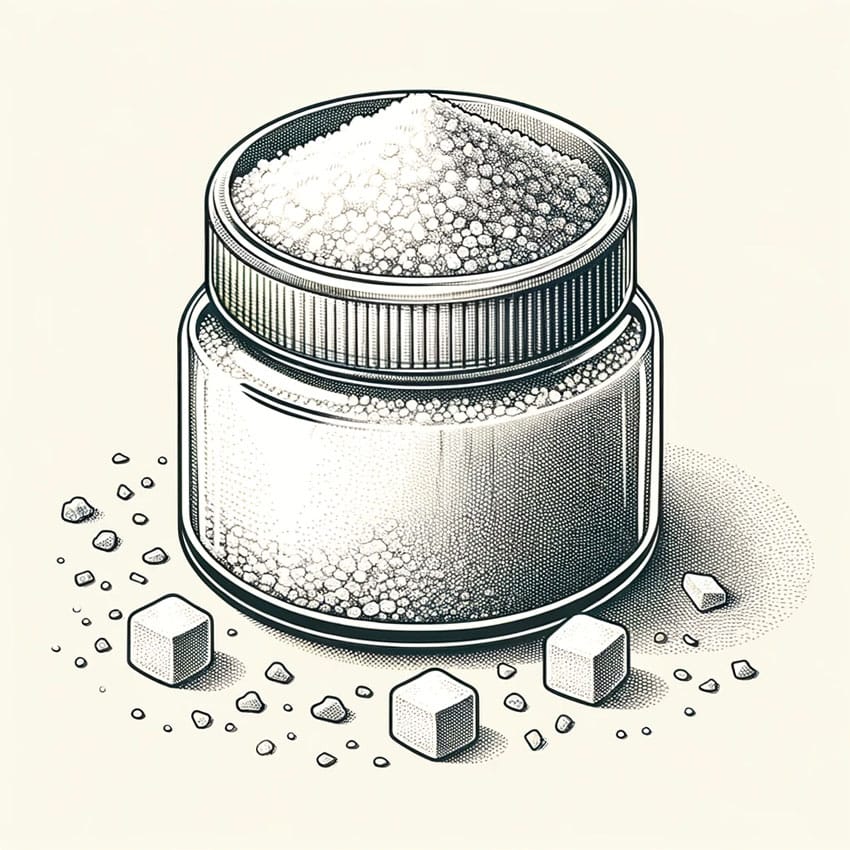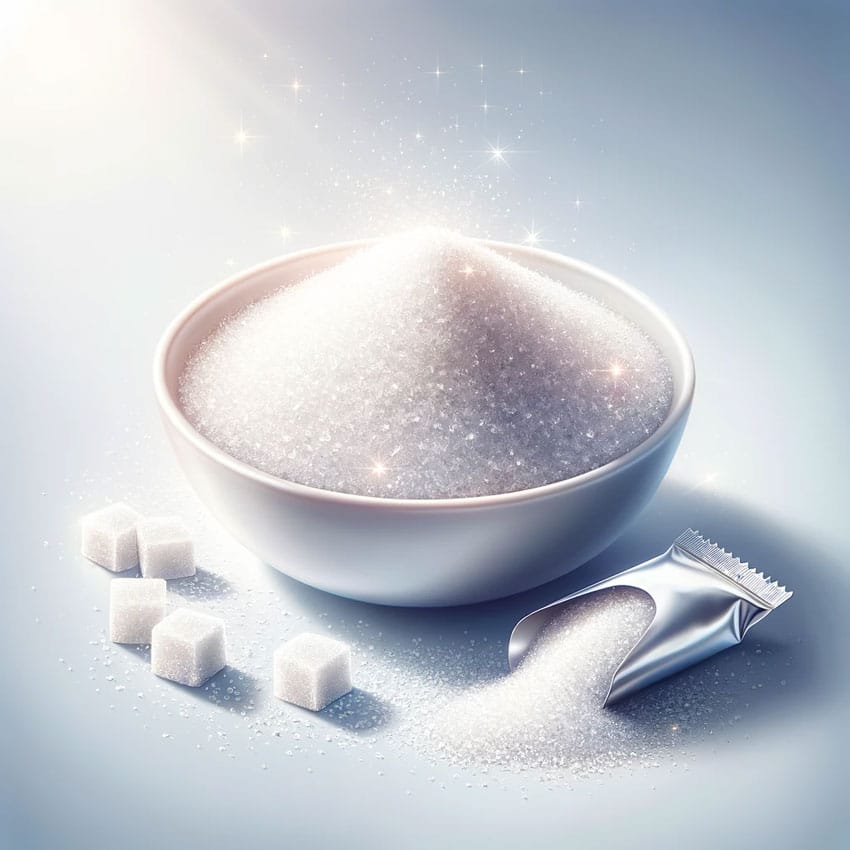Artificial sweeteners have been a popular alternative to sugar for decades, but their health effects have been a topic of debate.
One question that has emerged is whether artificial sweeteners cause acne.
Some people believe that consuming these sweeteners can disrupt the body’s natural balance and lead to skin problems, while others argue that there is no scientific evidence to support this claim.
Artificial Sweeteners and the Human Body

Artificial sweeteners are synthetic sugar substitutes that are used as a replacement for sugar in many foods and drinks. They are often marketed as a healthier alternative to sugar, as they contain fewer calories and do not raise blood sugar levels.
However, there is growing concern about the potential negative effects of artificial sweeteners on the human body.
One of the main concerns is that artificial sweeteners may disrupt the balance of gut bacteria in the digestive system. This can lead to a range of health problems, including digestive issues, inflammation, and even weight gain.
Some studies have also suggested a link between artificial sweeteners and an increased risk of developing type 2 diabetes.
Another potential concern is that artificial sweeteners may cause acne.
While there is limited research on this topic, some studies have suggested a link between the consumption of artificial sweeteners and an increased risk of acne. This may be due to the fact that artificial sweeteners can cause an increase in insulin levels, which can lead to an overproduction of sebum, the oily substance that can clog pores and lead to acne.
Despite these concerns, it is important to note that the research on the effects of artificial sweeteners on the human body is still in its early stages, and more studies are needed to fully understand the potential risks and benefits of these substances.
In the meantime, it may be wise to limit your consumption of artificial sweeteners and opt for natural sweeteners like honey or maple syrup instead.
Connection Between Diet and Acne
There is a growing body of research suggesting that diet may play a role in the development and severity of acne. Hormonal changes, such as those that occur during puberty or with polycystic ovary syndrome, can affect oil production in the skin, leading to acne. However, diet may also play a role in acne development.
One study conducted a comprehensive literature search of English-language papers examining the association between diet and acne. The study found evidence that glycemic index, dairy content, dietary fats, and probiotics may play a role in acne development and treatment. High glycemic load diets, in particular, may exacerbate acne.
Another study found a potential link between sugar consumption and acne, but the evidence is not yet conclusive. While some researchers and health commentators have implicated sugar as a cause of acne, more research is needed to determine the extent of this relationship.
While the evidence linking diet and acne is not yet definitive, it is clear that diet can have an impact on skin health. Eating a balanced diet with plenty of fruits, vegetables, and whole grains may help improve overall skin health and reduce the severity of acne.
Additionally, reducing intake of high glycemic load foods and dairy may also be beneficial for those with acne-prone skin.

Studies on Artificial Sweeteners and Acne
There is a growing concern among people that consuming artificial sweeteners can cause acne. While some studies suggest that there may be a link between the two, others have found no such association.
One study published in the journal Nature found that consuming artificial sweeteners can lead to changes in gut bacteria, which in turn can affect skin health. The study also found that consuming artificial sweeteners can increase insulin levels, which can lead to inflammation and acne.
Another study published in the American Journal of Clinical Nutrition found that consuming high amounts of artificial sweeteners can disrupt the balance of hormones in the body, which can lead to acne. The study found that consuming aspartame, one of the most commonly used artificial sweeteners, can lead to an increase in insulin levels, which can cause inflammation and acne.

However, not all studies have found a link between artificial sweeteners and acne.
A study published in the Journal of the Academy of Nutrition and Dietetics found that consuming artificial sweeteners did not have a significant effect on acne. The study found that while there was a slight increase in insulin levels after consuming artificial sweeteners, it was not enough to cause inflammation and acne.
Debunking Myths
Artificial sweeteners are often accused of causing acne, but is there any truth to this claim? Let’s take a closer look at some common myths and separate fact from fiction.
Artificial Sweeteners and Sugar
One common myth is that artificial sweeteners cause acne because they increase blood sugar levels. However, this is not entirely accurate.
While it is true that some artificial sweeteners can raise blood sugar levels, they do not do so to the same extent as sugar. In fact, many artificial sweeteners are considered “non-nutritive,” meaning that they do not provide any calories or affect blood sugar levels at all.

Artificial Sweeteners and Hormonal Imbalance
Another myth is that artificial sweeteners can disrupt hormonal balance and lead to acne.
While some studies have suggested a link between artificial sweeteners and hormonal imbalances, the evidence is not conclusive. Furthermore, even if artificial sweeteners do affect hormone levels, it is unclear whether this would be enough to cause acne.
Conclusion
In conclusion, the research on the relationship between artificial sweeteners and acne is inconclusive. While some studies suggest a possible link, others have found no significant association.
However, it is important to note that artificial sweeteners have been linked to other negative health effects, such as an increased risk of cancer and weight gain.
Individuals who are experiencing acne breakouts may want to consider reducing their intake of artificial sweeteners as a precautionary measure.
Additionally, it is recommended to maintain a balanced diet with plenty of fruits and vegetables and to stay hydrated by drinking water.

